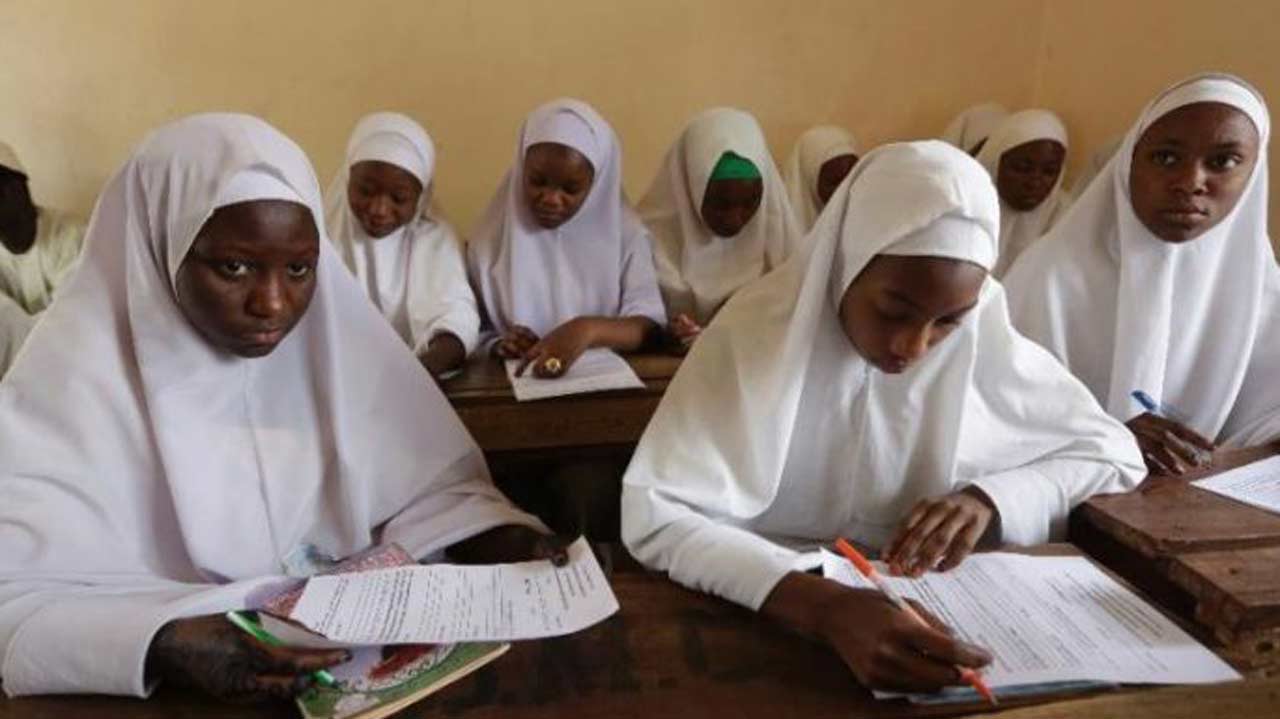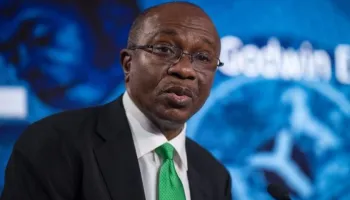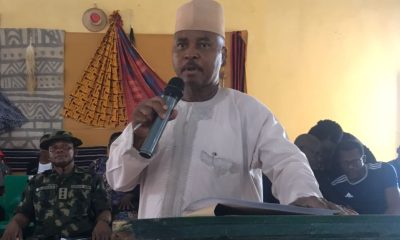COLUMNISTS
Three Books and Other Stories

By Reuben Abati
We have had a dizzying last 10 days at home and abroad: Novak Djokovic, with his COVID timeline of humiliation, from Melbourne to Dubai, and probably back to his home land of Serbia, where a disgraceful hero’s welcome awaits him for his abominable conduct, which may have far-reaching implications for his legacy and career.
Then, the Party Gate Scandal at No 10 Downing Street, where PM Boris Johnson and his team have been downing booze during COVID restrictions (May – December 2021) and pretending to be holier than thou on top of it.
BoJo needs to be reminded that he is not above the law.The U.K. needs to remind its leader that if the Chairman of Credit Suisse can be forced to resign for failing the test of personal responsibility and accountability, and Her Majesty’s favourite son can lose his pampered kid privileges because of bad association and conduct, then journalist-turned-Prime Minister Boris Johnson also needs to be reminded that the laws of England do not allow him to disobey the people’s laws and his own government’s guidelines, and get away with impunity.
The Labour Party is 10 points ahead in the polls, and Boris Johnson is about to lead the Conservatives to perdition. His hurriedly concocted “Operation Red Meat” and populist sops may not save him and his government.
China has recorded a GDP growth of 8.1 per cent, above the target of about 6 per cent, but retail sales is down to 1.7 per cent, the property sector which accounts for 25 per cent of the GDP is in trouble, the country’s zero COVID policy has impacted on productivity and efficiency, the People’s Bank of China’s reduction of interest rates has raised questions about how far China is willing to go to make key loans cheaper for businesses, even as that amounts to a loosening of President Xi Jinping’s “common prosperity policies”. Nonetheless, the president of China is beating a different tune on interest rates, and the path to economic recovery. The Chinese should keep their troubles to themselves!
Back home: There is the on-going African Cup of Nations (AFCON) in Cameroon. The Super Eagles seem to be doing well. But there have been killings in the North-East of Nigeria and yet the Governor of Yobe State and Caretaker Chairman of the ruling All Progressives Congress party (APC), Mai Mala Buni says there is so much peace in Nigeria, that the people can now sleep with two eyes closed, because President Muhammadu Buhari has tackled the insecurity problem in the country effectively. Pure sycophantic tosh.
That is what that is – in a country where the people have been blinded by killings and sundry forms of terrorism in all directions. And on top of all that, in the week that just ended, more Nigerians showed interest in the 2003 presidential race: Asiwaju Bola Ahmed Tinubu, former governor of Lagos State and chieftain of the All Progressives Congress (APC) increased the volume with his visit to President Muhammadu Buhari to declare his interest in the presidency of Nigeria and seek the president’s support.
Questions: Is the Tinubu dream realisable? And what next for Vice President Yemi Osinbajo, just in case he is also interested? Can he stand up to his former boss and mentor? In a copy-cat move, the governor of Ebonyi State also rushed to the Presidential Villa to announce that he is also interested in the Nigerian presidency. He also met with the president and addressed the State House Press Corps. Can someone in charge please stop this charade of going to the president to announce presidential interest? Nigeria does not run a branch of any political party secretariat at the Presidential Villa.
I honestly hope that one of these days we would not wake up to see some elements pasting their campaign posters in front of the president’s office and other parts of the Presidential Villa! These are definitely issues of interest, but sometimes the big issues can be boring and so repetitive, “the God of small things” speaks truth to power, and that is why I have chosen today to talk about books and something else, and here goes.
In the early 1990s, I was privileged to have been actively involved in the Non-Governmental (NGO) community in Nigeria, working either as a consultant or resource person on a number of diverse issues including development funding by international aid agencies, HIV/AIDS and health reporting, public health communication, women empowerment advocacy, women’s reproductive health and decision making, youth mentoring, population management, the environment, and adolescent reproductive health and sexuality.
International donor agencies were particularly interested in the latter, that is adolescent reproductive health and sexuality in the context of the spread of global poverty, population explosion, harmful cultural practices and prejudices, gender imbalance and the rapid surge in cases of HIV/AIDS, and the findings by researchers and observers alike that both the girl-child and female adolescents were among the most vulnerable categories of the world’s population. I recall, in particular, in those days, sessions at the Action Health Incorporated (AHI), a Lagos-based NGO established by Mrs Nike Essiet and her husband, Dr Uwem Essiet, with a special focus on adolescents.
The Essiets conducted research and surveys, and ran advocacy and peer review clinics for adolescent girls on such topics as abstinence, reproductive health, family life, sexuality, condom negotiating skills, and the dangers of early pregnancy and marriage. The tone of the methodology was preventive: How do we prevent many young girls, burdened by all kinds of factors, from becoming victims of those same factors and how they can be empowered to negotiate and make informed choices, and live meaningful lives. One of the early gains of that period was the development of a National Sexuality Education Curriculum within the school system, and the generation of useful literature on the subject to promote awareness.
The problem, as identified, was that adolescent sexuality was unusually high among Nigerian adolescents. Many young girls in secondary schools were already sexually active by the age of 16, many of them with multiple sex partners. The result was a high rate of abortion, often carried out by quacks and in secrecy, because of the illegality of abortion in Nigeria and the stigma of teenage pregnancy.
Many young girls had their future aborted, their potentials destroyed, and the net of poverty and social deprivation was expanded. The boys and men who put the girls in the family way were usually not affected; nor did they take responsibility. The girls were either forced to marry early or they dropped out of school. Close to 60 per cent of abortion related cases in Nigerian hospitals involved adolescents.
Many were also not protected by culture. In parts of the country, male adults married teenage girls and justified this on the grounds of religion and culture. Many of such girls were denied the opportunity of going to school, and because their bodies were not fully developed for pregnancy and motherhood, the hospitals were filled with young girls afflicted with Vesico-Vaginal Fistula. Maternal mortality and morbidity among pregnant teenage girls was high. The girls needed to be saved.
It is unfortunate, however, that as I reflect on some of the early work done in the 90s, in which I was both an observer and a participant, the condition of the Nigerian adolescent appears worse today than it was two decades ago. The education sector is troubled, as young girls are now special targets of kidnappers, bandits, terrorists and criminals, who turn them into sex slaves or brides against their wish, to their detriment.
Nigeria has in place the Child Rights Act, signed into law in 2003 but many states, 12 of them, have to date refused to give assent to the law. Child marriages remain rampant. Poverty has turned many young girls into prostitutes and victims in the hands of sexual predators. Rape is prevalent. Economic deprivation has destroyed family life. Parents are distracted. Teachers no longer pay enough attention to their roles in loco parentis. The gains of the past have been eroded. The present is worse than the past. Nonetheless, in a country that has one of the youngest populations in the world, a critical segment such as the youth population cannot be allowed to lose its potential to reckless sex and depravity, in an age of sexual permissiveness.
It is with these preliminary thoughts and reflections that I introduce three books that I have just read and which are now available for public appreciation and appraisal by Temilolu Oluwakemi Okeowo, namely Becoming An Alpha Female – A Guide Book for the Young Female, (2021, 96 pp.), Wisdom for Girls (2021, 84pp) and Letters To My daughters (2021, 82 pp.). Temilolu Okeowo is an Apostle, a Christian Evangelist of the Word, founder and Head Girl of The Girls Club of Nigeria, The Girls Apostolic Ministry of All Nations and the The Girls Club of Africa US. Inc. Since her days as an undergraduate student of Law, Ms Okeowo has been involved in advocacy for the girl child: How can she be saved in a depraved society, where a young girl is a natural victim of the combined forces of poverty, sexual predation and misogyny.
Whereas the NGO work that I referred to earlier conducted research and community based counseling, Temilolu Okeowo adopts the strategy of counseling and mentoring, and her platforms are the church pulpit, newspaper writings, the social media, books and direct action. She relies heavily on the Bible, and in all three books, the moral and Biblical dimensions of her arguments are unmistakable. Okeowo does not talk science. Her mission is to prevent young girls from going to Hell and losing their souls, because of what she calls “five minutes of enjoyment.”
She leaves the reader in no doubt that she believes pre-marital sex is more than a sin, that sexual intercourse is a spiritual encounter and chastity until marriage is the best and only option for any young lady who wants to become an Alpha Female. In the book, Becoming an Alpha Female, Temilolu Okeowo articulates the main themes of her concern. In a rather feminist tone, she argues that an average woman is imbued with divine privileges and gifts that men cannot “boast of” – women are designed by God to nurture the universe and sustain it, but many women have lost their purpose in life and ruined their own potentials because of sexual intercourse with men who deposit ill-luck and evil in their destiny.
In 20 Chapters, the author offers detailed counsel about what a young girl must do to achieve her full potentials in line with God’s principles. She says for example: “Girls, You are Institutions, not Barbie Dolls”, “Don’t let the World Damage You”, “Don’t End up (as) Slay Morons”, “Must You Have a Boyfriend Even at 18?”, “Pre-Marital Sex Gives the Devil an Upper Hand…”, “Don’t Let the Social Media Redirect Your Life” , “A Prayer Warrior Has the World At Her Feet”… “Stop Idolising Your Pastors”. My favourite Chapter if you may imagine is Chapter 20 on the dangers of idolizing pastors.
Okeowo is forthright in declaring that some pastors are at best “evil men hiding under the cloak of man of God”, and that they are human and not flawless men who could destroy the souls of innocent young girls.
Okeowo preaches faith in God, proper alignment with God. This much is well stated in the two other books: “Wisdom for Girls” and “Letters to my Daughters”. Here, the author is the “Agony Aunt” as she provides a compilation of columns she had written in The Nation and Punch newspapers and on her Facebook page.
The chapters in both books are in the form of requests for advice as well as comments, sent to the columnist/author by the public, mostly young girls, and their mothers. Accordingly, every response is directed to “my darling, precious, glorious, dignified, world-famous and heavenly-celebrated daughters”. Her tone is affirmative and optimistic. She seems convinced that every girl can be saved if only the female adolescent would avoid sex, or covenant with the Devil through pre-marital sex, and live a chaste life like Esther and Joseph in the Bible.
She recommends the spiritual life, and the need to avoid a certain distraction called “boyfriend” which can only result in sexual exploitation, slavery, misery and bondage. There are practical tips about how to go through university and graduate as a virgin! In Wisdom for Girls, the author specifically tells girls to beware of men and to learn how to deal with them, and that it is possible to get pregnant as a virgin if a woman does not keep her distance from a man. Okeowo’s ideal girl is “The God Girl”, “The Virgin”.
The villains of her narrative are lecherous men who take advantage of young girls with baits, randy young men who are just interested in their own lust, reckless young girls who give in to peer pressure or are simply wayward, and parents who have a duty to guide their children but are themselves neck-deep in sin, setting bad examples from generation to generation. Okeowo’s evangelical mission is to save everyone and to get those who may have been victims at one point or the other to move on, and embrace a new life, like Oprah Winfrey and Joyce Meyer.
These are altogether, books that should be read by every young girl out there who has been rendered vulnerable in a society that has lost its moral dimension. Copies of the book should be purchased and distributed widely in schools not just across Nigeria but the entire African continent. The plight of the girl-child in Nigeria as demonstrated in the pages of these three books is fairly representative of a universal dilemma, felt and experienced more, in varying degrees, in the developing world, especially, where poverty is rife, and the enforcement of fundamental human rights is culturally determined.
Okeowo constructs a binary universe of vulnerable girls and bad boys/men but isn’t it society itself that should be blamed and isn’t the system of leadership and governance in need of re-consideration? The assumption that men are evil may be too much of a generalisation. I do not believe that all men and all boys are bad or that the overriding goal of every male in relation to the opposite gender is sexual intercourse.
The truth is that even adolescent boys are also as vulnerable as the girls and there must be examples in that regard if we look closely enough. The argument about more responsible and intentional, value-driven parenting is unexceptionable but it truly takes a village to raise a child, and to the extent that the environment is important: certainly there must be roles for institutions- religious, civil, traditional and communal.
Okeowo raises important questions about how to save the girl child. Who will save the boy-child too? And what role must governments play to protect all segments of the population? These are the other questions beyond the teachings of the Bible, beyond morality, beyond faith and individual choices.
Reuben Abati, a former presidential spokesperson, writes from Lagos.
Faith
Challenges: Baptist Convention Urges Nigerians To Move Closer To God
By Abiodun Lawal
Lufuwape (Ogun), April 27, 2025 The Nigerian Baptist Convention says individual’s closeness to God remained the greatest factor in addressing various challenges.
President of the convention, Rev. Israel Akanji, stated this at a Sunday Service held at the Baptist International Convention Centre in Lufuwape, Lagos-Ibadan Expressway in Ogun.
The News Agency of Nigeria (NAN) reports that the Baptist’s 112th Annual Convention kicked off on Saturday to end on May 1.
NAN reports that the theme of the convention is: “Entering into Newness through Fasting and Prayer”.
Akanji who took his sermon from the book of Luke 8 vs 1 to 8 , noted that prayers remained an act of faith and called on Nigerians to focus on God who solves problems rather than the problems.
He said it was important to believe in possibilities and have the conviction that only God answers prayers.
The Baptist President cited example of a widow who was not afraid, annoyed or ashamed of her challenges but kept moving until she overcame the challenges with her closeness to God.
“We should run away from factors that will make us sin against God, we should love one another. We should not allow our adversaries to make us a failure.
“We should focus on God who solves problems. Keep making attempt on your goal, don’t give up , then believe in possibilities,” he said.
Akanji emphasised that the Baptist as a movement, was entering into newness through fasting and prayer as a vehicle to be able to experience newness in their lives and the country.
COLUMNISTS
The Emefiele Mess and Rivers State’s Comedy of Errors

By Zainab Suleiman Okino
The former Governor of Central Bank of Nigeria, Godwin Emefiele finally got a respite last Friday when he was released from Kuje prison after meeting his bail conditions, but not before his alleged atrocious and unfathomable heists were made public, to his eternal disgrace.
Emefiele was arrested by the Tinubu-led government and spent 195 days in detention, while investigations into his tenure at the apex bank were ongoing.
Although the media decried his and the former EFCC chairman, Abdulrasheed Bawa’s long detentions without trial, in line with the country’s laws, by the time his trial commenced, it had become obvious that we had a juvenile-like man in charge of the trillion-dollar economy of Nigeria.It is therefore not a surprise that the economy also collapsed and all he could do was to encourage a figure-head President Buhari to borrow and borrow more.
Back to the shocking revelations shaking the fabric of the Nigeria society, Emefiele, according to the special investigator, Jim Obazee, operated 593 illegal US, UK, and China accounts and diverted £543,482, 213 into UK banks alone, in addition to his trial over N1.2 billion procurement frauds.
There are also allegations that Emefiele sold or “gave away” Union Bank, Keystone Bank and Polaris Bank to proxies and cronies in the guise of being special purpose vehicles (SPVs) for acquisition after CBN’s no objection report, which he had orchestrated.
Emefiele’s sins are many and the coming days will reveal the Tinubu-led government’s readiness to handle corruption-related issues concerning the ex-CBN governor, other key players in the previous administration, and anybody for that matter, and that includes those associated with him.
Emefiele, fresh out of prison, has sought for the further investigation of the shady deals he was accused of, while claiming that the accusations against him “are false, misleading and calculated to disparage my person and injure my character.” I hope so too and wish Emefiele good luck, because only a person with mental disorder would commit such malfeasances and hope not to be held accountable for them.
By far, the most damaging of Emefiele’s obnoxious policies was that of the naira redesign, which assumed a political dimension allegedly to stop Tinubu from emerging as president, but nonetheless had devastating consequences on ordinary Nigerians, leading to deaths and the crippling of people’s finances.
To think that the idea emanated from a former presidential aide and relation of President Muhammadu Buhari, is to take Emefiele’s loyalty to the Buhari cabal to a ridiculous extent. What exactly did Emefiele want? As a former MD/CEO of Zenith Bank before his appointment to the apex bank by ex-President Goodluck Jonathan, he should have felt accomplished enough not to allow his ambition, greed, and pressures from the cabal (no matter how powerful they are) to sway him towards unethical deeds, with far-reaching consequences on his reputation.
Again, Emefiele is fighting back, claiming he had presidential approval for the naira redesign, and that he neither operated 596 accounts, nor withdrew $6.23 million alongside former SGF Boss Mustapha. Whatever!
He was perceived as having his two hands in the national cookie jar, while the Nigerian people reeled in poverty. His disastrous political voyage did not help matters. Emefiele’s alleged financial sleaze and fleecing of the country was unprecedented and the most brazen in recent times.
But instead of being cautioned, he was encouraged by other officials of the Buhari government in an unholy alliance that only the ex-CBN governor is now paying for. With his experience in one of the biggest banks in the country, why he allowed non-professionals in government to drag him into the pit is incomprehensible.
Does it really mean there is no limit to the official corruption of top government functionaries or because the Nigerian public also condones it and collects peanuts to become their cheerleaders? So, the joke is on us as a people, if there are no mechanisms to stop financial recklessness in high places before they get to an outrageous level like that of Emefiele.
Running for the office of the president was Emefiele’s greatest undoing and the height of impunity. For this brazen arrogance, it was obvious that losing out would also lead to his waterloo. Was becoming president calculated to protect his loot and turf? To whose detriment? To prove his immunity from prosecution or that he was untouchable? If he had transmuted to the president of Nigeria, he would have made history, running for election as a sitting CBN governor, when he was supposed to be non-partisan.
That thoughtless action would have finally nailed Nigeria as a banana Republic, with far-reaching implications for the country’s image and its people. It would have also meant the diminished integrity of the country’s number one financial institution, which would have become a cash cow for his relentless financial laundering; another form of state capture, whereby corporate governance, leadership capability and personal morals are near zero. Surely Emefiele needs to do a lot to clear his name and extricate himself from the rot that happened under his leadership.
Rivers State Comedy of Errors
When last week President Bola Tinubu invited the warring personalities in the Rivers State political crisis – Governor Siminalayi Fubura and ex-governor and Minister of the FCT, Nyesom Wike – to the Presidential Villa for a truce, little did we know that instead of a thaw, the crisis would spiral into ridiculous confusions, drama, and intrigues.
However, as things stand today, only ex-Governor Nyesom Wike seems triumphant, but will his laughter last long? With President Tinubu behind him, the answer is in the affirmative. However, will Governor Fubura and the people of Rivers State live with the idea of being governed from Abuja? The reactions from River State stakeholders and interest groups so far reveal otherwise. They were mistaken to think the president meant well by the time the details of the ‘negotiation’ began to unravel.
The president neither reprimanded the 27 lawmakers who had defected to his party (APC), nor asked all parties to return to status quo ante, which would have ensured they remain in their party, dropped the impeachment of the governor idea and withdrew the legal cases against the lawmakers from the court.
As impossible as this may appear, it was the closest to a peace deal for all. But that did not happen. Instead, the president was silent on the defection. Some other details have since emerged indicating that it was a win-win deal for the strongman and minister, Wike, now in the inner recesses of the power loop of the Tinubu government.
If the PDP/Fubura drops the case of defection against the 27 lawmakers now in APC, how can the governor sleep with his two eyes closed when his impeachment can be organised and executed within an hour? So, where is the governor’s armor or shield against the unexpected? Again, many legal luminaries like Femi Falana and Chief Robert Clarke have condemned the unconstitutionality of Tinubu’s intervention and therefore it cannot hold water. As such, where do we go from here and what transpired?
A member of the Rivers Elders Forum and delegation to the Villa, Chief David Briggs, in an interview described the reconciliation effort as akin to a trick and the imposition of a one-sided resolution. “That was not a meeting. Mr President walked in with a written resolution, addressed us, and declared that what he had in his hand is a presidential proclamation.
He emphasised the fact that he is the president of the Federal Republic of Nigeria, and anybody who tends to say no to what he is saying, it has consequences. Tinubu in a simple layman’s word is a threat. He wrote the resolution but refused to read it. He handed the resolution to Dr Peter Odili to read it.”
I’m not sure Tinubu would have accepted this kind of resolution from President Obasanjo during his crises-ridden governorship with his two deputies at various times, yet that is the bitter pill Fubara is expected to swallow to avoid being impeached and to make Wike feel good.
That Rivers stakeholders are now speaking is a natural consequence of the comedy of error unfolding in their state. If the Fubara-Wike rift continues and political divides deepen, the crisis will linger and multiply. And if President Tinubu does not display sincere neutrality but shows more preference for Wike and defectors from PDP to APC, the intrigues will continue. Who will laugh last in the Rivers conundrum? The politics in Rivers State is more than humour. It has the capacity to consume the governor and create endless frictions, sadly to the detriment of the people. But then who can ever understand the game plan of politicians?
COLUMNISTS
African Tales in Engineering the Courts

By Chidi Odinkalu
At their summit in Nassau, The Bahamas, in 1985, the Commonwealth Heads of State and Governments (CHOGM), decided to establish an Eminent Persons Group to explore difficult dialogue with the Apartheid regime in South Africa. The EPG was to be led jointly by Australia’s former Prime Minister, Malcolm Fraser and Nigeria’s former military ruler, Olusegun Obasanjo.
Emeka Anyaoku, the Nigerian diplomat who would later serve with considerable distinction as Secretary-General of the Commonwealth, headed the secretariat of the EPG.In 1986, the Group undertook its first insertion into South Africa. In his memoirs, The Inside Story of the Modern Commonwealth, Chief Anyaoku narrates that the mission was underwritten by a bargain with the Apartheid regime that all persons whom it met with would suffer no reprisals.
However, in Cape Town, Chief Anyaoku recalls, Trevor Manuel, who was then one decade away from becoming Finance Minister in the post-liberation administration, ended up in a police cell the night after meeting with the delegation.On the night of Trevor’s arrest, his lawyer called to notify Chief Anyaoku about the fate that had befallen his client. It was approaching mid-night when Chief Anyaoku called Mr. van Heerden, the liaison between the delegation and the South African regime, to accuse them of breaching the understanding at the very heart of the mission. Mr. van Heerden promised to investigate. Less than one hour later, according to Chief Anyaoku, Mr. van Heerden called him back to confirm that Trevor Manuel was indeed detained in a police cell.
In response to Chief Anyaoku’s insistence that Trevor be promptly released, Mr. van Heerden volunteered that he would be granted bail overnight to appear “before Magistrate Court No. 13 the following morning.” According to Chief Anyaoku “Mr. van Heerden then went on to tell me that, once the case was called, it would immediately be adjourned sine die…. I thereafter told him that I would make discreet use of the information he had given me. He interjected that I should please note that his ‘government and security services do not interfere with the judicial processes.’ I said, ‘of course, I know you don’t!’ and we both laughed.”
In a testament to Mr. van Heerden’s powers as a gifted clairvoyant, the court proceedings the following morning went exactly as he had predicted. His gods had engineered the courts.
Apartheid South Africa did not enjoy a monopoly of such gifts of judicial engineering. In November 1992, longtime trade Union leader, Frederick Chiluba, unseated independence ruler, Kenneth Kaunda, to emerge as the first president of a multi-party Zambia. His party was presciently named the Movement for Multi-Party Democracy, MMD.
The year after President Chiluba’s ascent to power, the office of Chief Justice became vacant after the country’s first indigenous Chief Justice, Annel Musenga Silungwe, quit the office at the age of 57. To succeed him, Chiluba appointed Matthew Ngulube. At the time, Zambia’s judges were poorly paid, a legacy from the era of Kaunda’s one-party state. Chief Justice Ngulube quickly became a darling of the international conference circuit, traveling the world and delivering homilies on judicial independence.
As his second five year term of office came to an end, President Chiluba contrived a plan to succeed himself. Armed with a judiciary which he believed to be in his pocket, Chiluba believed he could overcome a constitutionally imposed term limit and run for a third term. Zambians declined his importunation, turfing him out in 2001 in favour of senior lawyer and Chiluba’s own former Vice-President, Levy Mwanawasa.
At the beginning of President Mwanawasa’s tenure, it emerged that Chief Justice Ngulube’s preferred habitation was in Chiluba’s pocket. Once there, he burrowed himself into the favours of the former president, festooning himself with choice goodies, which enabled him to afford an extraordinary mansion on the outskirts of capital city Lusaka, valued at the annual budget of major government departments. He also trousered a reported $168,000 to finance his tastes, including school fees for his children in order to “buy his loyalty”. Decisions in all cases against Chiluba suddenly became fully engineered. When, for instance, the opposition sued Chiluba – suspected to have descended from the Democratic Republic of the Congo (DRC) – over his nationality, the Chief Justice acted more like the president’s counsel than an impartial judge.
Zambia was not the only place where judges preached independence but failed to practice it. In Malawi, government engineered judges with generous awards of sugar distribution quotas.
In Nigeria, the revolutionary decision by the Supreme Court in January 2020 to award the governor’s office in Imo State to a man who had been well beaten to fourth position in the election conducted the previous year, was trailed a fortnight earlier by a grubby “man of god” with a nose for predicting only what the politicians pay him to.
Last year, as Zimbabwe headed towards elections conducted earlier this year, President Emerson Mnangagwa, overcome with unparalleled generosity, doled out $400,000 to each of the country’s judges claiming that it was a housing loan in a country in which a luxury home cost about 20% of that sum or less. By coincidence, Priscilla Chigumba, Chairperson of the electoral commission, which was to supervise the vote, just happened to also be a judge. The outcome was foregone.
Around Africa, the encounter with elective government has cratered assumptions about judicial integrity and independence. As a result, few are prepared these days to credit judges with virtues associated with Caesar’s wife. In many cases, judges now openly cavort with politicians and are unashamed about serving the interests of ruling parties, rather than holding them to account. The consequences can be brutal.
In April 2020, Mali’s Constitutional Court overturned the results of more than two dozen parliamentary seats won by the opposition. Its decision to hand these seats over to the ruling party sparked an uprising that led to the government’s overthrow. When the court was busy robbing the opposition of its seats,
the Economic Community of West African States (ECOWAS) and the African Union (AU), looked complicitly on. After the uprising had been consummated in a coup, they got their institutional knickers in a proverbial twist, protesting the travails of non-existent democracy.
Judges who refuse to be so readily engineered can suffer intimidation. In Malawi, former president Peter Mutharika launched an unprecedented attack on the judiciary after the Supreme Court upheld a Constitutional Court decision annulling his re-election and ordering re-run after finding the election to have been massively rigged. In what appeared to be an act of political reprisal, the president, himself a former law professor of considerable experience, moved to oust the Chief Justice, Andrew Nyirenda and another senior justice, Edward Twea, by ordering them to take compulsory leave ending in retirement. Tens of thousands of Malawians, led by hundreds of lawyers, protested in support of the judges. On 14 June 2020, the High Court suspended the presidential order, staying the ouster of Nyirenda and Twea. The people of Malawi did the rest, seeing off the forgettable tenure of Peter Mutharika in the re-run that ensued.
Some judges may even pay with their lives. Such was the tragic fate of Congolese judge Raphael Yanyi, who presided over the unprecedented trial for corruption trial of Vital Kamerhe, the Chief of staff to the president. On May 26, 2020, Judge Yanyi, who was supposed to be under close protection from a team of six specially-trained police officers, died suddenly. The police initially claimed that the judge died of a heart attack “but an autopsy report revealed that he died from knife-like injuries to the head” or what the Justice Minister described as “the blows of sharp points or knife-like objects, which were thrust into his head.” Far from dying of natural causes, it was clear that Judge Yanyi had been murdered.
Wise judges work hard to avoid this fate with benefits. In the past, judicial greatness was calibrated in the currency of jurisprudence. Today, many of Nigeria’s senior judges prefer to measure their success in terms of propinquity to power and impunity with planting their children and intimates on the bench. That is the local currency of judicial engineering.






























